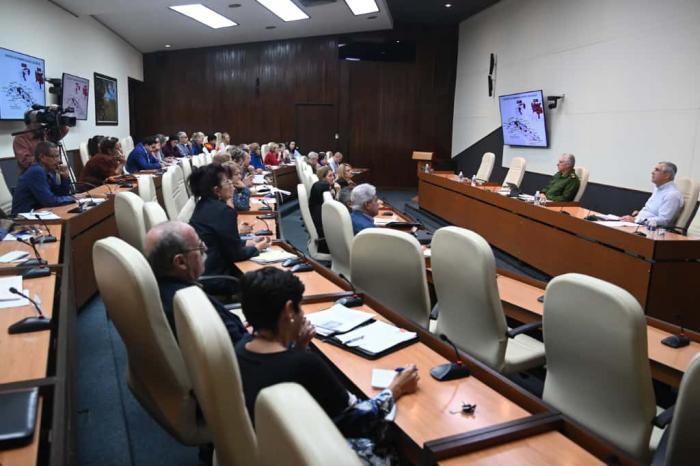In response to a surge in nonspecific febrile syndrome cases primarily caused by arbovirus infections, Cuban President Miguel Díaz-Canel has announced weekly meetings to analyze the situation and propose solutions. The decision follows a gathering of health experts and scientists at the Palace of the Revolution, where the President emphasized the need for a coordinated approach akin to the nation’s COVID-19 response. The meeting, attended by Deputy Prime Minister Eduardo Martínez Díaz and prominent health specialists, focused on the current epidemiological landscape, particularly the spread of dengue, Chikungunya, and Oropouche viruses. Dr. José Raúl de Armas Fernández reported a decline in febrile cases across eight provinces but highlighted the persistence of arbovirus transmission in 38 municipalities, with Havana being notably affected. Chikungunya cases have surged to 21,681, concentrated in six provinces, while Oropouche cases remain absent since September. Dr. María Guadalupe Guzmán Tirado underscored the global prevalence of Chikungunya and Cuba’s intensified surveillance efforts. Dr. Yagen Pomares Pérez, Director General of Primary Health Care, stressed the importance of early fever detection and patient isolation, drawing parallels to lessons learned during the pandemic. She emphasized the need for hospitalizing vulnerable groups, including children under two, pregnant women, and older adults with comorbidities. Dr. Madelaine Rivera Sánchez, National Director of Surveillance and Vector Control, highlighted challenges in fumigation efforts and called for community participation to enhance vector control measures. The government aims to address equipment shortages and logistical issues to curb the epidemic’s spread effectively.
